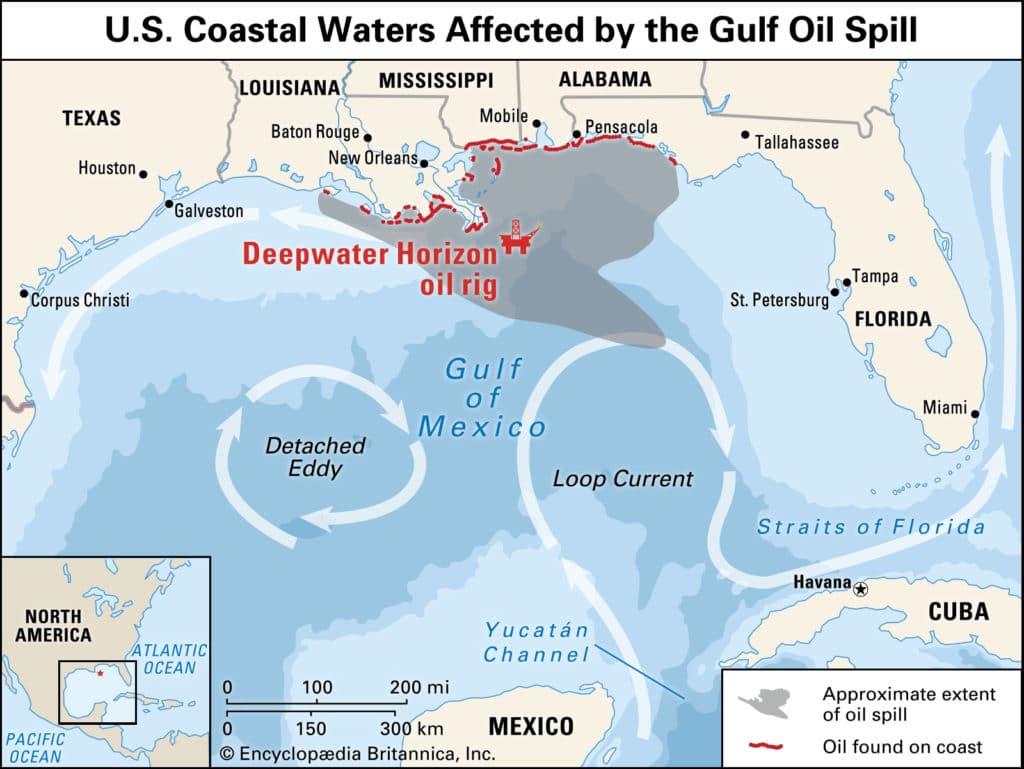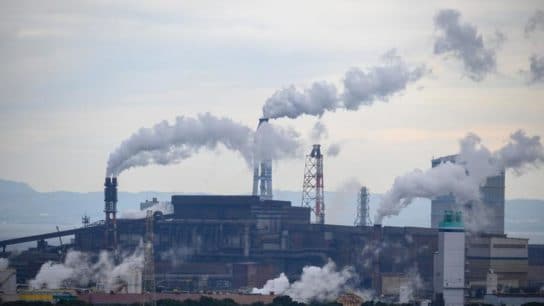Scientists have found that dolphins in the Gulf of Mexico are still showing signs of alteration 10 years after the Deepwater Horizon oil spill. Even worse, their progeny displays the same traits, meaning the damage could be transmittable to offspring.
Earth.Org takes a closer look.
—
Many remember the disastrous Deepwater Horizon oil spill, but for those who don’t here is a brief review.
Deepwater Horizon was an ultra-deepwater, movable, semi-submersible offshore drilling rig built in South Korea, leased to BP and stationed off the Gulf of Mexico. On April 20th, 2010, a blowout caused an explosion on the rig that killed 11 crew members and ignited a massive fireball, eventually sinking the whole structure. This left the seabed well open and gushing, eventually spewing out enough to be called the largest oil spill in history.

Source: Encyclopædia Britannica, Deepwater Horizon oil spill of 2010: path of the oil.
Fish throughout the Gulf in the following years had drastically higher death rates and lower lifespans, along with deformities, despite the US’s best efforts to limit the oily spread. Now, a recent study shows that a decade later, dolphins are still suffering from the Deepwater disaster.
Sylvain de Guise and his team from the Society of Environmental Toxicology and Chemistry made health assessments on bottlenose dolphins in Barataria Bay, Louisiana (contaminated by the spill) and Sarasota Bay, Florida (unoiled) between 2011 and 2018. They found that the older Lousianian dolphins still had signs of poisoning 8 years after the spill, which included higher counts of immune cells involved in allergic reactions in mammals.
More surprising still, their offspring, born after the spill, demonstrated the same patterns, although less pronounced. This points to the possibility that the irregular gene expression patterns could be passed down, thus making it a multi-generational problem.
“The long-term effects and potential for multigenerational effects raise significant concerns for the recovery of dolphin populations following the spill,” said the lead author.
While there isn’t much we can do about it now, it is important to understand the extent of the damage these incidents cause. Our natural resources remain alarmingly unvalued in the economy, which is why we are damaging it so. There is a high probability that, were it correctly priced, BP’s risk assessments would have led to either reinforce security or drop the project altogether. Food for thought.
This article wa written by Owen Mulhern. Cover photo by Wynand Uys on Unsplash
You might also like: Food Production: Recent History and Where we are Heading










![The Statistics of Biodiversity Loss [2020 WWF Report]](https://u4d2z7k9.rocketcdn.me/wp-content/uploads/2020/12/lprwinkyTHB-544x306.jpg)





